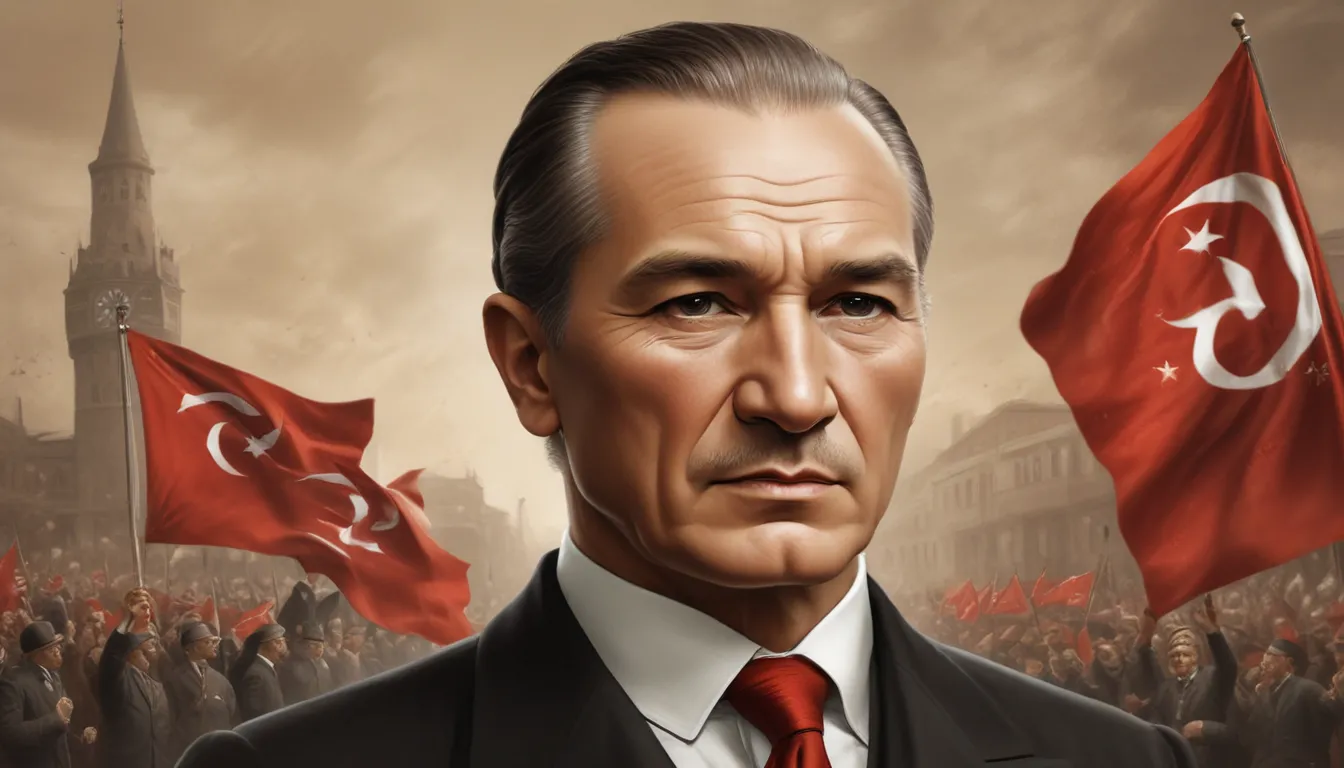The images in our articles may not match the content exactly. They are used to grab your attention, not to show the exact details in the text. The images complement the text but do not replace it.
When it comes to influential historical figures, Mustafa Kemal Atatürk stands out as one of the most remarkable leaders of the 20th century. As the founder of modern Turkey, Atatürk played a pivotal role in revolutionizing the country and shaping its destiny. His incredible accomplishments and bold reforms have been a subject of admiration and fascination for scholars, historians, and the general public alike. In this article, we will delve into the astonishing facts about Mustafa Kemal Atatürk that highlight his remarkable legacy and the impact he had on Turkish society and beyond. From his military prowess to his progressive vision and unwavering determination, Atatürk’s story is one that continues to inspire and captivate people around the world.
The Founder and First President of the Republic of Turkey
Mustafa Kemal Atatürk was a visionary leader who played a key role in transforming Turkey into a modern and secular state. He served as the President from 1923 until his death in 1938. Atatürk’s leadership during the Turkish War of Independence was instrumental in securing Turkey’s independence from foreign occupation, establishing him as a national hero and an iconic figure in Turkish history.
The Architect of Change: Kemalism
Atatürk implemented a series of reforms known as “Kemalism” to modernize and westernize Turkey. These reforms included the adoption of a Latin-based alphabet, the separation of religion and state, and granting equal rights to women. By promoting secularism and progressive values, Atatürk laid the groundwork for a modern and forward-thinking Turkey.
Groundbreaking Reforms and Achievements
- Women’s Suffrage: Atatürk introduced women’s suffrage in Turkey, making it one of the first countries in the world to grant women the right to vote and run for office. This significant step towards gender equality showcased Atatürk’s commitment to inclusivity and progress.
- Secularism: Atatürk promoted secularism in Turkey by implementing policies to separate religion and state. He replaced Islamic law with a secular legal system and introduced secular education to curtail the influence of religion on governance.
- Modern Education System: Recognizing the importance of education in nation-building, Atatürk established a free and compulsory education system in Turkey. This initiative made education accessible to all Turkish citizens, regardless of gender or socioeconomic status.
- Westernization: As part of his efforts to modernize Turkey, Atatürk encouraged the adoption of Western-style clothing instead of traditional Islamic attire. This symbolized Turkey’s embrace of Western values and its departure from Ottoman traditions.
- Infrastructure Development: Under Atatürk’s leadership, Turkey witnessed significant infrastructure development, including the expansion of railways, modern communication networks, and the construction of new roads and bridges. These initiatives laid the foundation for Turkey’s economic growth.
An Iconic Landmark: Anitkabir
Atatürk’s mausoleum, Anitkabir, is a significant landmark in Ankara and serves as the final resting place of Mustafa Kemal Atatürk. It is a memorial and a symbol of Turkey’s respect and gratitude towards its founding father. The grandeur of Anitkabir reflects Atatürk’s enduring legacy and his pivotal role in shaping modern Turkey.
Conclusion
In conclusion, Mustafa Kemal Atatürk’s remarkable contributions and reforms have significantly shaped modern Turkey. His vision for a secular, modern, and progressive nation continues to inspire generations even today. The astonishing facts about Atatürk mentioned above offer a glimpse into the legacy of this revered leader and his enduring impact on Turkish society.






